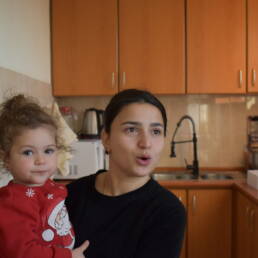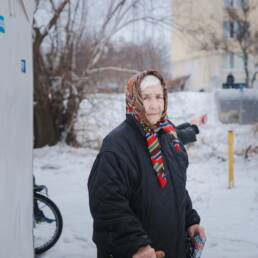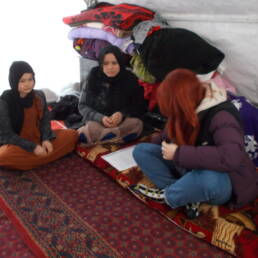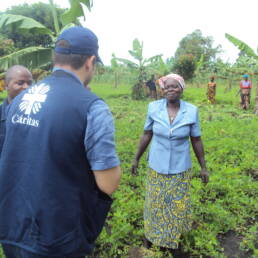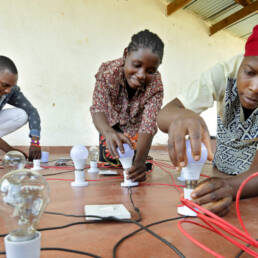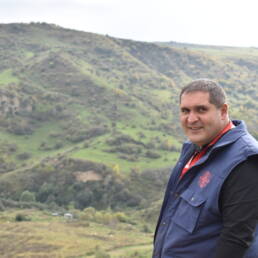Author
Dorien Van Haute
Deputy Director
Caritas Vlaanderen (Belgium)
Caritas Europa launches a series of stories from four Roma settlements in Slovakia. Despite the harsh living conditions, local communities have not lost hope, thanks to numerous Caritas initiatives. Our Community of Practice (CoP) on Roma Inclusion now shares these positive experiences with the entire network.
Enhancing the human dignity of the Roma population in Europe presents a significant challenge as structural inequalities and generational poverty persist on a large scale. Meaningful change is still needed to help Rome people realise their rights and live a dignified life. Why is it important that Caritas works on Roma inclusion? The Caritas network shares a mission of supporting the most excluded in society all over Europe, which obviously includes the Roma communities too. In fact, nowadays, Roma citizens are still systematically treated in a discriminatory way and their voices are often not heard or valued.
Also, more needs to be done, especially on a political level. Investing in the empowerment of Roma is crucial to break the cycle of generational poverty. Caritas organisations have been pushing for structural change for decades, and to be even stronger in our advocacy mission, Caritas Europa started a Community of Practice (CoP) – a group of experts– that works on Roma inclusion. At the moment, the group includes Caritas staff from Austria, Belgium, Czechia, Portugal, Serbia and Slovakia and we look forward to expanding it.
Within the CoP, which I have the pleasure to chair, we share experiences on how we support the Roma communities in our respective countries. Although our contexts and ways of working differ, we learn and see how other projects are innovative, useful and effective in supporting the integration of Roma people. In 2023, we went on a study visit to Slovakia hosted by Caritas Slovakia in Bratislava and its dioceses in Poprad and Košice (near the Polish border). We visited the highly populated Roma settlements there and met with priests and sisters who live and work in these communities to support children and adults to have a better life. We also visited Caritas social centres and a housing project in Slovakia supports Roma families to build their own houses.

The Roma ethnic minority is part of Slovakia’s history and Caritas Slovakia, in collaboration with the Catholic Church, actively promotes Roma inclusion. Through consistent efforts, they enhance educational opportunities, support vocational training and facilitate healthcare access for the Roma community. Many of their initiatives also focus on social integration, cultural preservation and housing. But, similarly to other European countries, they face many challenges. Witnessing the exclusion and extremely poor living conditions of the Roma settlements in Slovakia was emotionally tough, but it also made us want to focus on solutions.
Although immediate change is not possible, long-term planning can help a lot. What are the key elements for change? Firstly, what Caritas and local Churches do to help the Roma communities is remarkable, but to achieve structural change, the whole society at the national and local levels should be involved. Secondly, we firmly believe that the Roma communities must be directly involved in decision-making and treated as fellow actors of change.
In 2023, we published a position paper that tackles more recent challenges, such as Roma fleeing the war in Ukraine, the energy and cost-of-living crisis and EU countries’ low prioritisation of their national Roma Strategic Frameworks. Over the years, Caritas organisations have persistently advocated for structural reforms.
The ambitious objectives outlined in the EU’s Roma Strategic Framework to be implemented nationally offer a significant opportunity for progress. Key goals within this Framework include improving housing conditions, education and access to clean drinking water. All these goals are and must be achievable.
We are happy to invite you to read the stories from our study visit to Slovakia. We hope you find more inspiration and motivation to continue pursuing a better and more dignified life for all in your daily work.
You can download the stories here.
Photos courtesy of Caritas Europa’s Community of Practice (CoP) on Roma Inclusion.




